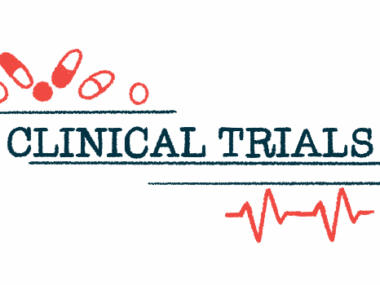Company plans to seek Canada OK of HAE treatment donidalorsen
Theratechnologies to license Canadian rights from Ionis
Written by |

Theratechnologies said it will ask Health Canada next year to approve donidalorsen, an experimental injection therapy designed to reduce the risk of swelling attacks in people with hereditary angioedema (HAE). The company agreed to acquire exclusive rights to commercialize the treatment in the country.
Donidalorsen, originally developed by Ionis Pharmaceuticals, is being reviewed for potential approval in the U.S., with a decision expected next August. Theratechnologies will obtain the Canadian rights under a licensing agreement with Ionis.
“The agreement with Ionis is a testament to our team’s capabilities to advance innovation across North America and reaffirms our commitment to be a commercially focused company that delivers sustained top- and bottom-line growth and value for shareholders,” Paul Lévesque, president and CEO of Theratechnologies, said in a company press release.
Applications seeking approval of donidalorsen in Europe, where Otsuka Pharmaceuticals holds its commercialization rights, are also underway.
“We are pleased to partner with Theratechnologies, bringing together their deep regional expertise in Canada and our shared goal of delivering innovative new medicines to people living with severe and debilitating diseases,” said Brett Monia, PhD, CEO of Ionis.
Agreement covers HAE treatment, other therapies
The agreement also gives Theratechnologies Canadian rights to commercialize olezarsen, an experimental therapy being developed by Ionis for familial chylomicronemia syndrome (FCS) and severe hypertriglyceridemia (sHTG), two disorders marked by high levels of fatty molecules in the blood.
“Ionis is well-positioned to deliver these medicines to the U.S. market as we rapidly approach our first anticipated independent commercial launches, assuming regulatory approvals of olezarsen in FCS and donidalorsen in HAE,” Monia said. “Our new partnership with Theratechnologies supports our commitment to ensure access to our innovative medicines globally.”
HAE is marked by swelling attacks driven by the excessive production of a signaling molecule called bradykinin. Donidalorsen, which is given by an under-the-skin injection every one or two months, is designed to reduce the production of prekallikrein, a precursor of the enzyme that controls the production of bradykinin. By doing so, donidalorsen aims to lower excessive bradykinin production to ultimately prevent or reduce the frequency of HAE swelling attacks.
Data from a Phase 3 trial called OASIS-HAE (NCT05139810), which tested donidalorsen against a placebo in more than 90 adults and adolescents with HAE, showed the experimental therapy was significantly better at reducing the rates of swelling attacks.
Most patients who completed the Phase 3 trial continued receiving the experimental therapy as part of an extension study called OASISplus (NCT05392114). Long-term data have indicated that patients given donidalorsen every one or two months saw rates of swelling attacks drop by more than 90%.
Data from an earlier Phase 2 clinical trial (NCT04030598) and its open-label extension (NCT04307381) have likewise indicated that donidalorsen treatment leads to durable decreases in swelling attack rates for people with HAE. Findings from all these studies are included in the application seeking donidalorsen’s approval in the U.S.






